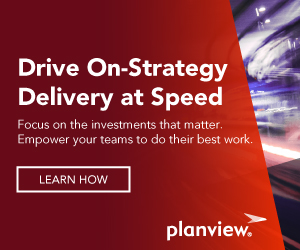
If there are two people who truly understand how Fortune 100 companies can become more adaptive and responsive in the Novel Economy, it’s Brian Solis (Global Innovation Evangelist, Salesforce) and our CEO and founder, Dr. Mik Kersten. In a recent webinar, the bestselling authors discussed what you can do to support the health and happiness of your customers and employees moving forward.
There’s No Going Back
While the path forward may be unclear, Brian stresses that there’s one route that we won’t be taking — and that’s backward. “In my research, I’ve seen a lot of people making decisions as if we are going back to the way things were but that isn’t the case.” He argues that we’re witnessing the “digital disruption of digital transformation” where it has become apparent that years of investment have been misplaced and improperly prioritized.
“We’ve had to transform at a faster clip in 90 days than we’ve had to do in ten years. Digital transformation itself is having its own control-alt-delete moment. More importantly, we should think about that control-alt-delete moment for ourselves—for our perspective, for our mindsets and sense of purpose, and for how we’re moving forward and why. Going back to normal will only take us back to where a lot of problems were rooted in. What if we looked at our current situation, not as disruptive, but as an invitation to grow in new directions?”
“Generation N” Leads The Way
To learn how to move forward towards a new direction, Brian encourages us to recognize how the pandemic represents a somatic marker in our lives. “We are forever changed in what we value, how we reason, and how we make decisions. The foundations of business will be built on the pillars of how humanity has changed in various contexts — the customer, employee, you name it.”
Brian believes a new generation is emerging—Generation N (for novel i.e., new and unusual)—which takes into account how our behaviors and values have evolved in the last few months. “This new generation of employee and customer should give your digital transformation hyperfocus. We have to apply a human-centered approach where we put Generation N in the context of our work. Not just to improve operations and efficiencies, but to meet business outcomes that are human outcomes.”

Iteration vs. Innovation
Brian echoes the sentiment of Mik’s book Project to Product in that we should stay clear of the patterns of yesteryear if we want to innovate in meaningful ways. That means not conflating iterating with innovation.

“Iteration is doing the same things better for business continuity. Innovation is investing in new tech, new processes, and new systems to unlock, create and deliver new value. We need to do new things to make old things obsolete. So instead of being disrupted, we can become the disruptors.”
This bi-modal approach, as honed by the tech giant oligopoly, can put your organization in good stead as you navigate the Novel Economy:

Once organizations have found their feet in the current climate, Brian is bullish that “at some point, we will have to come alive. To master the new normal by making investments in digital transformation that free us up to explore new opportunities for digitalization from an operations standpoint, and as a business model for innovation to help us thrive.”
Innovate away from Project Management
Recognizing the opportunity to transform purposely in the Novel Economy is only half the battle. Leadership must disperse with the old ways of working and managing. To adopt models and frameworks that allow us to adapt and learn about the duality of how to build a digital business that meets our customers’ and employees’ evolving needs.

“The old ways of approaching management and leadership just don’t work for innovation in digital,” explains Mik. “Each technological revolution brought a new way of management. In the age of digital, it’s all about humans and creative tasks. Building software and digital experiences is fundamentally a creative and conversational endeavor. If your organization doesn’t enable and support that, as many aren’t, they going to fall behind.”

Many organizations are stuck in the old ways of thinking because it worked in the past to build physical products such as dams and bridges. “Innovation was basically this waterfall process,” elaborates Mik. “You do a bunch of design thinking and collaboration up front, build the thing, mass-produce it, and then win the market. Innovation in digital is not like that. It’s ongoing. The core organization needs to be able to experiment, learn, adapt and pivot.”
Measuring Innovation
The ability to learn and adapt at a speed to remain competitive hinges on an organization’s feedback loops. “The faster the feedback loop, the faster you can innovate in a market that is changing in a way we can’t quite predict,” continues Mik. “The tech giants have already done this and can adjust to this fast pace of innovation. My main concern for the leadership out there at existing organizations is they don’t know how to measure the outcome of their innovation and where to invest resources.”
So what can these leaders do? Watch on session on-demand to hear more from Brian and Mik on:
- Applying measurement frameworks that enable end-to-end flow and continuous feedback
- Moving way from proxy metrics to focus on the flow of value to internal and external customers
- Managing innovation as a portfolio
- The criticality of customer-centric product value streams
- Improving the happiness and engagement of teams working across value streams
- Supporting the culture transition from project to product
- And more…






